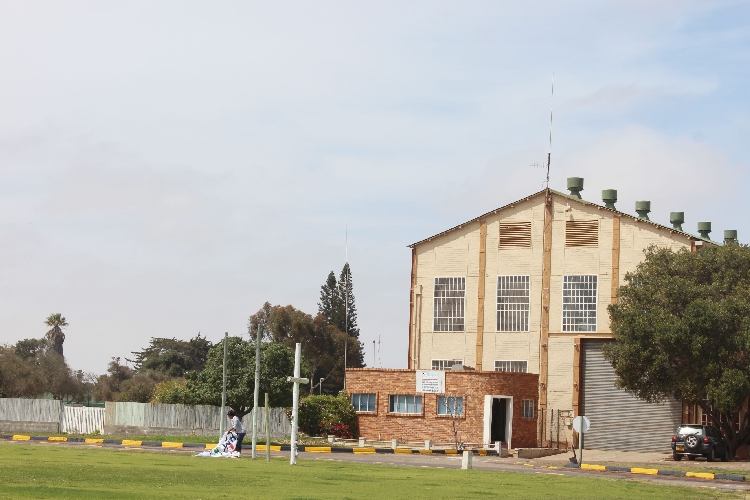Thoughts are uncertain. Some people are embracing the change, while others are fearing the worst.
The southern diamond town, Oranjemund, will be handed over to the town council for the first time on 14 October, declaring it an ‘open’ town.
Since its establishment in 1936, Oranjemund has been run by the Namdeb Diamond Corporation, owned by both the Namibian government and diamond giant De Beers. And because of the abundance of the sought-after precious gem found at the town, permits were necessary to enter the town.
There’s no doubt that the general feeling at Oranjemund was that of security. Residents could walk around without fear. Lunch time would see a group of school-going pupils heading home from school – even those in Grade 1.
Crime is at an all-time low and life is pretty much like any other peaceful town. And being in a community that lived by the values of ubuntu, there’s no place like it: Residents live among their gemsbok (which you might find feeding on your cabbage patch in the afternoon). The town is family-friendly – parks are plenty and well-taken of. Activities are also easy to come by. Just recently, a gravel road to Rosh Pinah was completed in August, making the town more accessible.
Previously, visitors had to drive through South Africa to Alexander Bay and then head to the town.
However, with the town soon to be declared open, fears abound that this sense of safety and security may be threatened.
Naftal Negongo, owner of the radio station Oranjemund FM and long-time resident, said the change was very necessary. “It speaks to the sustainability of the town,” he said. “We were living in such a synthetic environment, it’s not real. Namdeb is, in terms of mineable mineral resources, naive to believe that we can continue how it was in the past. It’s naive to think that diamonds are infinite. It’s not a choice that we have. I think we should have opened up much earlier so that we can bring in more money and more employment.”
And although he is welcoming the change, he feels that a stubborn part of him wants things to remain the same as well. “I’m selfish with my little town. I grew up here and remember it to be a certain way, but it’s no longer what it used to be.
“But Oranjemund will continue to be safe. It is a border town, so movement is limited. Let’s understand what Rosh Pinah is like, for example. There’s an odd crime here and there. We are fearful, but we’re overly fearful for nothing.”
Negongo reiterated that it was important to embrace the new state of the town and start becoming more aware.
“Since a long time ago, we could leave our houses open, but the attitude has to change.” He also confirmed that a new mall was coming to the town. “It’s necessary because Oranjemund has had monopolies like Spar. They were protected. But if another business comes, we can go to someone else.”
Another resident, Michael Kalonda, was excited for what was to come. “We can’t wait. We want the town to prosper in terms of economic development. The industry will be booming, like tourism. More investors will come to the town. It’s a transformation.”
As for now, Kalonda stated that visitors, especially those who are interested in attending the opening, still have to apply for a permit, but the system will be abolished as from 14 October.
However, identification will still be required when entering the town and those who are interested in accessing the more restricted areas will still require permits.
Namdeb holds a majority stake in the town, meaning that if you want to buy a home there, you have to deal with them first and your options would either be to rent or live in the home with terms and conditions attached to it. However, with the responsibility shifting to the town council, residents will now be able to buy their own homes or plots for the first time.
On 19 September, Benjamin Nakanyala, chief executive officer of DVN Investment Group, was able to secure plots at Oranjemund – a groundbreaking moment.
Speaking on the opening of the town, he said: “I’m very happy. It’s something great. We’re going to open the doors to the rest of Namibia. We’ve got a lot of tourism opportunities for investors. There will be business markets as well. People can come to the town freely without having to apply for permits. There is no better time than now. If Namdeb stopped operating here, Oranjemund would turn into a ghost town.”
His company is currently running a project called the Oranjemund Proper Property Development Project which entails the construction of township services, 52 townhouse units on the consolidated portion of land, as well as the construction of 24 single residential units for middle to upper-income brackets. “I’m so grateful for getting the opportunity to own land,” he said.
Francis Milomo, owner of the Desert Delight Cafe at the Oranjemund Airport which opened in August, also welcomed the change. “I’m looking forward to the whole development with optimism. It will bring some anxiety among residents but it’s natural. I’m optimistic in the sense that I can foresee the town growing socially and economically, and I think if stakeholders come together, Oranjemund could become a model town.”
And from a business owner’s perspective, Milomo felt more people would be employed. “The market will expand and we will be able to give better customer service. We need to be prepared for that. At the same time, we need industries to support the local industries and absorb unemployment. We’ve got a beautiful beach and amenities; it’s a call for us to step in. How do we become proactive?”
It may be a step in the right direction, but the question still remains – is the town ready for the change?
Stay informed with The Namibian – your source for credible journalism. Get in-depth reporting and opinions for
only N$85 a month. Invest in journalism, invest in democracy –
Subscribe Now!







